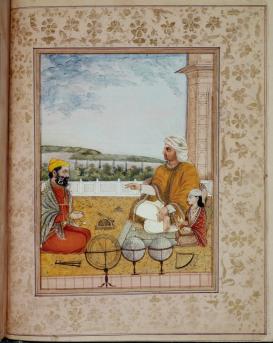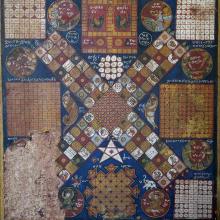While Transmission focuses on communication pathways in knowledge exchange and Translocation charts the movements of knowledge elements through space and time, Transcreation explores the profound transformation that occurs when external knowledge encounters new cultural landscapes. In essence, it probes the heart of the question: how does “foreign” knowledge come to be “localized” within a recipient society’s intellectual and sociocultural milieu?
Operating at the crossroads of translation and creation, Transcreation views the assimilation of new knowledge as a dynamic process where individuals and communities actively engage with external ideas through revision, reconciliation, and reconstitution. This domain invites us to examine the societal, historical, philosophical, and theological factors that shape this transformation.
Imagine, for instance, the journey of Islamicate astronomical ideas into the realm of medieval Sanskrit discourse. Instead of merely being accumulated, these ideas were assimilated through a complex process, shaped by the interplay of language, culture, and identity. This process, in turn, helped shape new frameworks of Sanskrit astronomical thinking in early-modern India. By studying the substantive conditions of such knowledge formation, ASTRA aims to achieve a deeper understanding of the creative mechanisms that sustained astral learning across the vast terrains of Asia.




